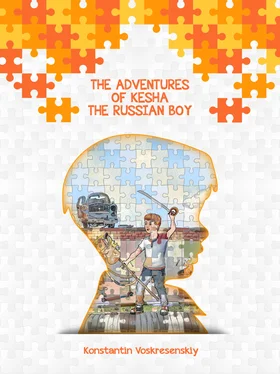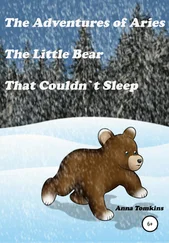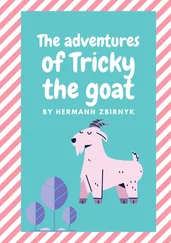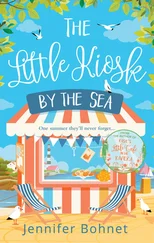We didn't smoke that much; it was mostly just to get to grips with the idea and meet modern standards. But full disclosure: I was the first to start. When my mother demanded that I tell on my partners in crime, I said «I will never snitch on my mates, matter what!» And the case was closed.
At the same time, one of my «accomplices» Alexey Antonov from the flat 35 was compromised. He snitched on everyone to his mother. All the mothers at home made a showdown of the whole thing. But Alexey told everyone that I was the traitor, because I was first exposed.
That's when our long-term friendship ended.
My mood actually improved when I'd run out of friends. There were less ways to get tricked. But I had completely forgotten about my Russian Literature amp; Language teachers. Clearly I had either a lack of experience or short memory loss.
Ms. Irina Borisovna had always been friendly and kind to me. I liked her too, but a man called Taras came between our love. It was Taras Bulba from the novella by Nikolay Gogol.
I had to write an essay on this subject, but I'd forgotten about it until it was almost too late. I scribbled it down while I was at my mother's workplace, a kid's massage clinic.
This time, my grammar was perfect. It was the commas that let me down. I used them so weirdly, that some of my sentences didn't even make sense. It was just hilarious! And everybody in the class thought so to. Laughter hit 100 dB, no less.
These sentences were read out to the class, with that stuck-up teacher voice, which drew a strong, hard line under my love for this teacher and the whole subject of Russian literature. I hate it.
But hatred, I'm sure you will agree, is a bad feeling, and later fate decided to play a little game on me: my wife Maria is a Russian Language amp; Literature teacher. Yes, yes, very funny… But years later I learned about Russian postfixes, some parts of the speech and some other little things. That said, I still can't manage phonetic from the third grade, which our daughter Anfisa has already mastered. Indeed, language is not my strong point.
Then, Ms. Irina Borisovna went on maternity leave and she was replaced by a trained specialist. She was so awful that I can't even remember her name. Ms. Valentina, was it? At the end of the ninth grade, in five lessons in a row I was asked a question in literature class. It was on the subject of the great genius Pushkin. In the first three lessons, I answered questions about him with all that I could remember from the textbook, no worries. But then by the fourth lesson I began to struggle. Some people weren't getting any questions, I was being tortured ever time! The fifth time came and it started to drive me mad. For all five answers I got five points out of five, again, no problems. But wasn't there such a thing as too much Pushkin per pound of flesh?
I was asked a sixth time, and I publicly refused to answer.
«Don't you know?» asked the teacher.
«I know, but you've already tortured me enough. Why do I have to answer every time?» I replied.
«Right, so, obviously, you don't know. Two points. [15] Equivalent to a D in western grading.
»
During the break, I came up to her to find out what she wanted from me, but she shrugged me off, did not listen, and said that it was impossible to change the grade she's given me. This brought my marks down, and I would be awarded a 4/5 for the term. F**k you… I thought to myself, leaving in silence. Pushkin, Pushkin, Pushkin… I get it, he's our national treasure. But you'd have thought someone else would have written something better by now…
Chapter 6. 1995. First Money
Pushkin, lifts, and grammar – I had bigger fish to fry. A real man needs money. A lot of money. For… crisps, chupa chups, and a little later for the collectable Teenage Mutant Ninja Turtle stickers.
Сheburashka [16] Also known as «Topple» in earlier English translations. It's a character from Russian children's literature and now a cartoon based on the 1966 story by Soviet writer Eduard Uspenskiy. The bottles were brown, just like Сheburashka, hence why we referred to the bottles this way.
beer bottles were the answer to our meaningless summer existence and the absence of any pocket money. It made us a little more confident and even more grown-up. It was fun.
Конец ознакомительного фрагмента.
Текст предоставлен ООО «ЛитРес».
Прочитайте эту книгу целиком, купив полную легальную версию на ЛитРес.
Безопасно оплатить книгу можно банковской картой Visa, MasterCard, Maestro, со счета мобильного телефона, с платежного терминала, в салоне МТС или Связной, через PayPal, WebMoney, Яндекс.Деньги, QIWI Кошелек, бонусными картами или другим удобным Вам способом.
Russian: Константин Дмитриевич Воскресенский
Russian: Сергей Сметанин
Russian: «Во имя твоё»
Russian: Груз 200. A military code word referring to the coffins used to ship Soviet soldiers' coffins home.
«Babushka» is Russian for «granny».
Russian: Олег Васильевич Кошевой. 8th June 1926 – 9th February 1943. Koshevoy was a Soviet partisan and one of the founders of the clandestine organisation «Young Guard», which fought the Nazi forces in Krasnodon, Ukraine, during World War II.
A traditional greeting in some Slavic, Nordic, Baltic, Balkan and Middle Eastern countries
A form of collective farm in the Soviet Union.
A car designed and manufactured in the Soviet Union.
A series of rear-wheel-drive superminis from the Soviet Union.
A type of low-cost, brick or concrete-panelled apartment block of three to five floors. They were common in the Soviet Union during the early 1960s, named after then-leader of the USSR, Nikita Khrushchev.
A special form of collective justice that existed in the Soviet Union.
An old Russian folk sport similar in concept to bowling. The aim of the game is to knock out groups of skittles arranged in various patterns by throwing a bat at them.
Your main teacher that stayed with you throughout school, much like a form tutor in the UK.
Equivalent to a D in western grading.
Also known as «Topple» in earlier English translations. It's a character from Russian children's literature and now a cartoon based on the 1966 story by Soviet writer Eduard Uspenskiy. The bottles were brown, just like Сheburashka, hence why we referred to the bottles this way.



![John Stieber - Against the Odds - Survival on the Russian Front 1944-1945 [2nd Edition]](/books/405234/john-stieber-against-the-odds-survival-on-the-russian-front-1944-1945-2nd-edition-thumb.webp)








